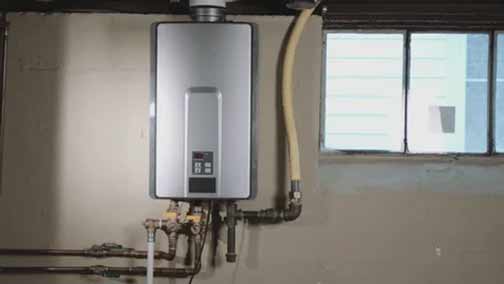
When looking for ways to improve the ecological impact of our homes, one of the last places we look is the plumbing. For some reason, plumbing systems don’t strike us as harmful to the environment. Maybe because they don’t emit carbon or cause noise pollution
However, Sand Dollar Management explains, residential plumbing systems are among the top consumers of one of Earth’s most precious resources, water. It would surprise you to know how much water is used in everyday household activities like taking a shower, washing dishes and flushing the toilet.
Even more shocking is that a lot of this water is wasted due to the inefficiencies that exist in most home’s plumbing systems. When nature suffers, everyone pays the price. We already see some of that in the form of ever-increasing water and energy bills.
Is there something you can do about the problem?
Yes, by making minimal changes to your plumbing, you see a big difference in your home’s level of eco-friendliness and save money. Making marginal changes to how your home uses water can translate into massive cuts in energy and water bills.
In other words, by doing your part to save the planet, you also get the added benefit of putting money into your pocket. This post will explain practical insights from Chicago plumbers on improving the eco-friendliness of your home’s plumbing systems.
Strategies for a more eco-friendly plumbing system
Find and fix all plumbing leaks in your home
As a first step, you want to ensure that your existing water pipes and plumbing fixtures are working as efficiently as possible. You can do this by finding and fixing all hidden leaks in the system. Common hidden leaks in the home include:
- Running toilets: One running toilet in your home can jack up your water bills by wasting hundreds of gallons of water every day. Fixing this problem is cheap and easy.
- Dripping faucets: A single faucet dripping at just 10 drips per minute will waste 29 gallons of water per month. Think how much this problem is costing you.
- Appliances: The drain hose of water-utilizing appliances is a common site for water leaks. Inspect these hoses for damage and replace them if necessary.
- Behind walls: Water pipe leaks inside the walls of your home can go on for a long time without being discovered. In addition to wasting money, they damage your building.

Tankless water heater: Because they don’t have tanks, these water heaters don’t have to reheat stored water repeatedly. They heat just enough water on demand.
Upgrade to more efficient systems to avoid water wastage
You may want to replace some plumbing fixtures and appliances in your home. The financial burden of this step will be easier if you have a long-term plan and start with the more affordable options.
- Install low-flow toilets: These highly efficient toilets use less water than traditional toilets. They can save up to 13,000 gallons of water or as much as $130 yearly.
- Low-flow showerheads: Without any negative impact on your bathroom experience, low-flow showerheads will help you save as much as 2,700 gallons of water per year.
- Water-saving faucets: By dispensing just 1.5 gallons/minute versus 2.5 – 5 gallons/minute for standard faucets, low-flow faucets cut water consumption by at least 30%.
- Energy-saving home appliances: Energy Star-certified refrigerators, dishwashers, ovens, microwaves, washing machines, etc. will drastically reduce energy and water bills.
- Smart irrigation systems: Unlike conventional systems, smart irrigation systems don’t waste water. They monitor the weather and other factors to optimize watering.
- Tankless water heater: Because they don’t have tanks, these water heaters don’t have to reheat stored water repeatedly. They heat just enough water on demand.
- Insulate water pipes: Insulating exposed pipes reduces heat loss and the energy needed to heat the water to the required temperature.
- Invest in copper piping: Because they are long-lasting and need little maintenance, copper pipes help you cut costs while reducing the pressure on natural resources.
Additional strategies for eco-friendly plumbing systems
Here are a range of tips and methods to help make your home’s plumbing systems even more eco-friendly.
- Rainwater Harvesting: Rainwater is a free resource that we often allow to go to waste. Harvested rainwater can be used for washing the car or driveway and watering the lawn.
- Capture and reuse greywater: Dirty water from sinks and showers can be captured and repurposed to complement fertilizers through the irrigation system.
- Use only natural products: Eco-friendly drain-cleaning solutions help to protect your plumbing and keep hazardous chemicals out of the soil and groundwater.
- Monitor and maintain: Regular inspections and prompt plumbing system maintenance will prevent inefficiencies that encourage water and energy wastage.
Finally, you will need a licensed plumber with experience in residential plumbing systems. Professional plumbers are always up-to-date on the most eco-friendly plumbing products and the best practices for keeping your plumbing systems environmentally friendly.